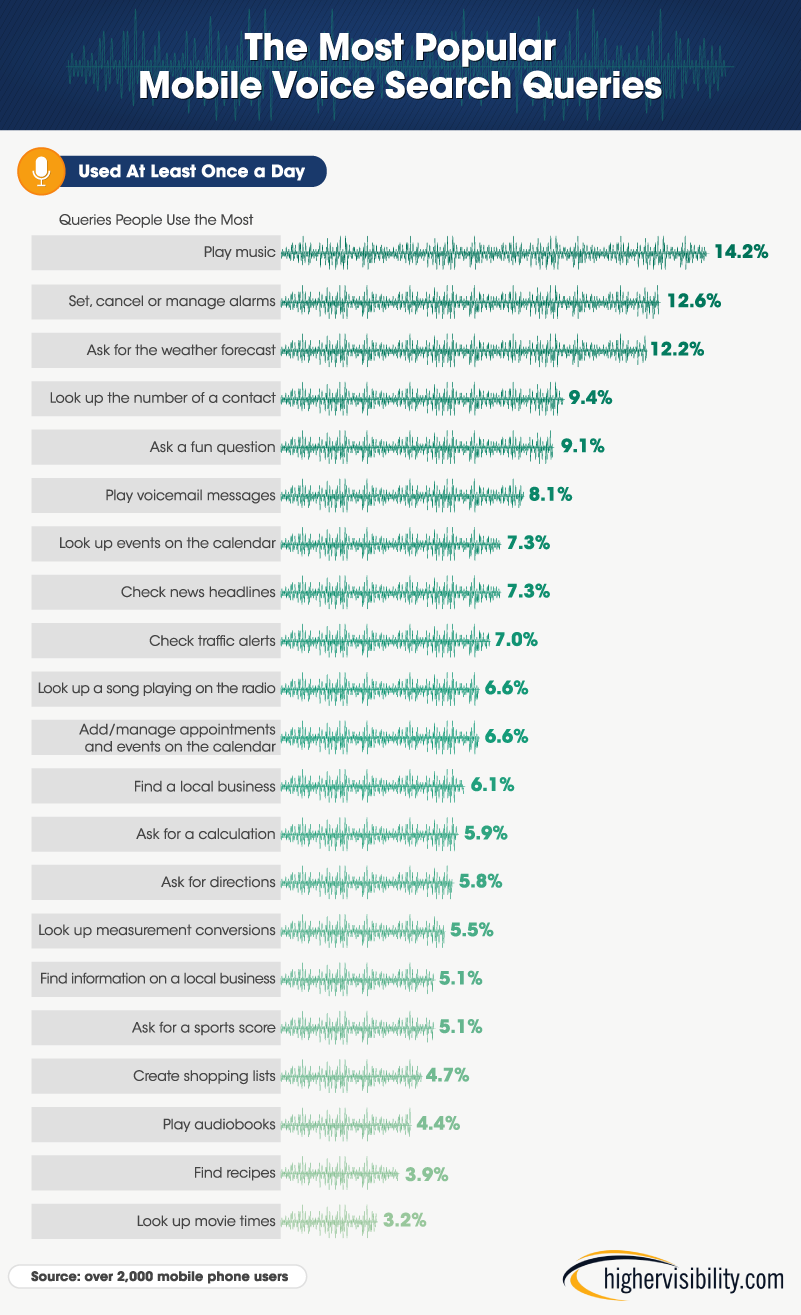Survey: Alexa the most frequently used assistant, Cortana seen as most accurate
Nearly 60 percent used voice because it was faster or easier than typing.
Here come the voice-search and virtual assistant surveys. Two weeks ago, Stone Temple Consulting released survey data on voice assistants. This week, HigherVisibility has published a survey asking similar questions of roughly 2,000 smartphone owners in the US.
The most interesting finding in this new survey is the fact that Alexa is used more regularly than its competitors. Though there are fewer Alexa devices in the market, its audience appears to be the most engaged. It’s used “at least once a day” by a higher percentage of the installed base than Siri, Google Assistant or Cortana.

This higher Alexa usage frequency might be partly explained by the fact that people buy Echo/Alexa specifically for its virtual assistant capabilities, whereas other assistants are essentially a feature of smartphones, which people buy for a number of reasons.
Google Home was not included in this survey (or didn’t show up). It will be interesting to see whether the usage patterns with Google Home are similar to those for Alexa.
Another noteworthy finding is the perception that Cortana is the most accurate virtual assistant. Two caveats: It’s not clear whether or how accuracy was defined in the survey, and the data are entirely self-reported. It’s not based on competitive testing or objective comparisons. However, all of the major assistants scored well in perceived accuracy. That’s another striking finding.
The most common virtual assistant use cases are reflected in the chart below. Music, alarms and weather are the top three. Expect this list to change over time as people become more comfortable doing a broader range of queries and lookups with voice. Local business searches were almost in the middle of the list (slightly below the midpoint).

The most common voice-usage scenario was “while driving.” That was followed by activities that made it difficult for people to look at or manually interact with their smartphones. Roughly 59 percent of respondents also said that they used voice because it was “faster” or “easier” than typing or opening a browser.
As one might expect, Millennials were much heavier users of voice assistants than Gen Xers and Boomers — combined. However, members of those earlier generations did use voice across a range of activities. Finally, the survey found that men and women had slightly different usage patterns, though not usage frequency.



